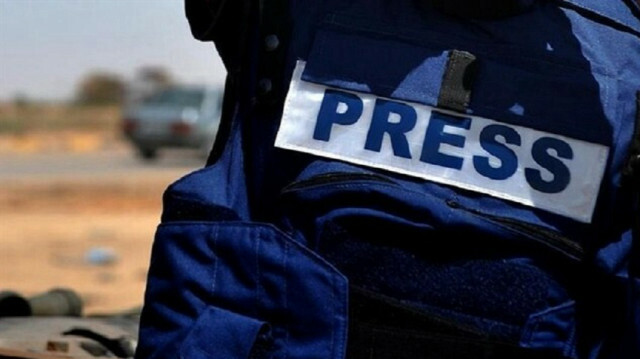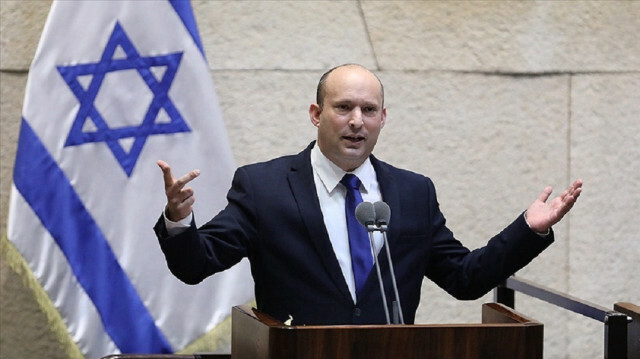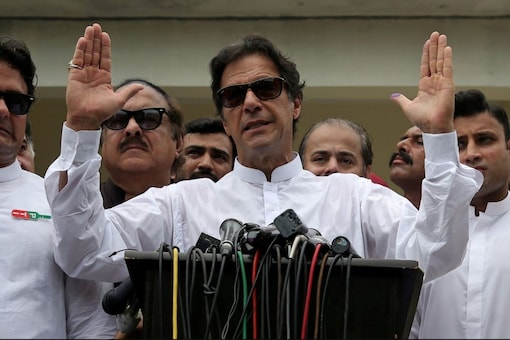Myanmar's military generals gathered in Naypyidaw for the annual Armed Forces Day on March 27, a bullish parade of tanks, truck-mounted missiles, and troops on horseback.
However, there was one setback — Myanmar's junta was left without a foreign dignitary. Russia's deputy defense minister, Alexander Fomin, who attended last year's event months after the junta forcibly took power in a bloody coup, didn't make it this year despite an invite.
Russia has been one of the few supporters of the junta since its coup in February 2021, a partnership that has included the delivery of a considerable quantity of Russian-made weapons.
In return, Myanmar's junta has been one of the few Asian governments to praise Russia's invasion of Ukraine, calling it an "appropriate action."
Russia is Southeast Asia's top defense exporter
Russia is Southeast Asia's leading arms supplier, selling around $10.7 billion (€9.75 billion) worth of defense equipment to the region between 2000 and 2019, according to the Stockholm International Peace Research Institute (SIPRI).
Most of that was to Vietnam; almost 80% of Vietnam's military equipment has been provided by Russia since 2000. Between 2015 and 2021, Russia also sold $247 million worth of arms to Myanmar, $105 million worth to Laos, and $47 million worth to Thailand, according to SIPRI data.

Hunter Marston, a researcher on Southeast Asia at the Australian National University, said some military hardware from Russia is probably still scheduled to arrive in Myanmar. "I am fairly certain more is on the way," Marston said.
"At some point, the [military] needs Russian technical experts to repair its helicopter fleet, and it's not clear how they do so if Russia's defense industry is all focused on Ukraine," he noted.
'A cautious wait and see posture'
On March 9, the Philippine government said it will proceed with a deal to purchase 17 military transport helicopters from Russia that was signed and partially paid for before the Russian invasion of Ukraine.
"Military affairs watchers were disappointed with the purchase of Russian hardware even before the invasion," said Joshua Bernard Espena, a Manila-based defense analyst.
But Southeast Asian governments face a dilemma as the Ukraine war enters its sixth week, amid an ever-growing list of alleged Russian atrocities and as Western leaders call on Vladimir Putin, the Russian president, to be prosecuted for war crimes.
Arms procurements and bilateral exercises with Russia "will remain highly sensitive even after the war in Ukraine ends," said Carl Thayer, an emeritus professor from the University of New South Wales in Australia.
The political atmosphere will be "poisoned" if the US and its allies try to punish Putin's Russia for war crimes and demand hefty reparations from Moscow to assist reconstruction in Ukraine.
"Most regional states and ASEAN itself will adopt a cautious wait and see posture in order not to raise tensions or incur punitive sanctions with the US and European states," said Thayer.
Reliance on Russian weapons
The European Union, for instance, could sanction Russian suppliers of arms to the Myanmar military, said Kristina Kironska, a Bratislava-based academic who specializes in Myanmar. Yet it's questionable if that would have any impact. "I am sure Russia and Myanmar will find a way to cooperate," she said.
The US could likely do more. In 2017, it introduced the Countering America's Adversaries Through Sanctions Act (CAATSA) that threatens sanctions on foreign governments that purchase weapons from Russia.

However, the likes of Indonesia and Vietnam, as well as India, received waivers from Washington on the proviso that they were reducing their dependency on Russia.
The reason explains why Russia is an important arms dealer in Southeast Asia, and not just because of the apparent affordability or lethality of its weapons.
The region is now at the heart of the US-China superpower rivalry, while several of the states, notably Vietnam and the Philippines, are engaged in heated territorial disputes with Beijing over the South China Sea.
Hedging between China and the US
The Southeast Asian response has been to "hedge" in order to cooperate with both superpowers at the same time as diversifying relations with other countries.
If Southeast Asian governments bought weapons from the US, it would frustrate Beijing. Buying weapons from China, as the likes of Thailand and Cambodia have done, frustrates Washington. But buying weapons from Russia was deemed acceptable to both superpowers.
If the region's governments were to strike new weapons deals with Russia once the Ukraine war is over, and the US responds with sanctions on them, it could be "counterproductive," Espena said.
Indonesia was negotiating the purchase of Russia-made Su-35 fighter aircraft but the threat of CAATSA sanctions reportedly caused a rethink in Jakarta. The Indonesian government said in December 2021 that it will not proceed with the purchase of the jets. Instead, it signed an $8.1 billion deal with France in February to purchase Rafale jets.
Nonetheless, Indonesia didn't sever its military relations with Russia. Last December, Jakarta hosted the first Russia-ASEAN joint maritime exercise.
Diversifying away from Russian arms not easy?
Although Vietnam has considerably improved relations with Washington in recent decades, including on the security front, it knows that purchasing munitions from the US would ring alarm bells in Beijing
























